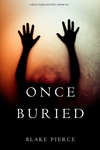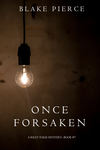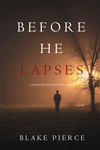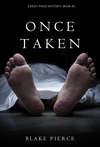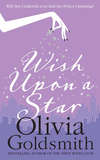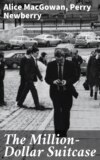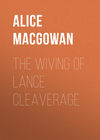Czytaj książkę: «The Million-Dollar Suitcase»
CHAPTER I
WORTH GILBERT
On the blank silence that followed my last words, there in the big, dignified room with its Circassian walnut and sound-softening rugs, Dykeman, the oldest director, squalled out as though he had been bitten,
"All there is to tell! But it can't be! It isn't possib – " His voice cracked, split on the word, and the rest came in an agonized squeak, "A man can't just vanish into thin air!"
"A man!" Knapp, the cashier, echoed. "A suitcase full of money – our money – can't vanish into thin air in the course of a few hours."
Feverishly they passed the timeworn phrase back and forth; it would have been ludicrous if it hadn't been so deadly serious. Well, money when you come to think of it, is its very existence to such an institution; it was not to be wondered at that the twelve men around the long table in the directors' room of the Van Ness Avenue Savings Bank found this a life or death matter.
"How much – ?" began heavy-set, heavy-voiced old Anson, down at the lower end, but stuck and got no further. There was a smitten look on every face at the contemplation – a suitcase could hold so unguessably great a sum expressed in terms of cash and securities.
"We'll have the exact amount in a few moments – I've just set them to verifying," President Whipple indicated with a slight backward nod the second and smaller table in the room, where two clerks delved mole-like among piles of securities, among greenbacks and yellowbacks bound round with paper collars, and stacks of coin.
The blinds were down, only the table lamps on, and a gooseneck over where the men counted. It put the place all in shadow, and threw out into bolder relief the faces around that board, gray-white, denatured, all with the financier's curiously unhuman look. The one fairly cheerful countenance in sight was that of A. G. Cummings, the bank's attorney.
For myself, I was only waiting to hear what results those clerks would bring us. So far, Whipple had been quite noncommittal: the extraordinary state of the market – everything so upset that a bank couldn't afford even the suspicion of a loss or irregularity – hinting at something in his mind not evident to the rest of us. I was just rising to go round and ask him quietly if, having reported, I might not be excused to get on the actual work, when the door opened.
I can't say why the young fellow who stood in it should have seemed so foreign to the business in hand; perhaps the carriage of his tall figure, the military abruptness of his movements, the way he swung the door far back against the wall and halted there, looking us over. But I do know that no sooner had Worth Gilbert, lately home from France, crossed the threshold, meeting Whipple's outstretched hand, nodding carelessly to the others, than suddenly every man in the room seemed older, less a man. We were dead ones; he the only live wire in the place.
"Boyne," the president turned quickly to me, "would you mind going over for Captain Gilbert's benefit what you've just said?"
The newcomer had, so far, not made any movement to join the circle at the table. He stood there, chin up, looking straight at us all, but quite through us. At the back of the gaze was a something between weary and fierce that I have noticed in the eyes of so many of our boys home from what they'd witnessed and gone through over there, when forced to bring their attention to the stale, bloodless affairs of civil life. Used to the instant, conclusive fortunes of war, they can hardly handle themselves when matters hitch and halt upon customs and legalities; the only thing that appeals to them is the big chance, win or lose, and have it over. Such a man doesn't speak the language of the group that was there gathered. Just looking at him, old Dykeman rasped, without further provocation,
"What's Captain Gilbert got to do with the private concerns of this bank?"
As though the words – and their tone – had been a cordial invitation, rather than an offensive challenge, the young man, who had still shown no sign of an intention to come into the meeting at all, walked to the table, drew out a chair and sat down.
"Pardon me, Mr. Dykeman," Cummings' voice had a wire edge on it, "the Hanford block of stock in this bank has, as I think you very well know, passed fully into Gilbert hands to-day."
"Thomas A. Gilbert," Dykeman was sparing of words.
"Captain Worth Gilbert's father," Whipple attempted pacification. "Mr. Gilbert senior was with me till nearly noon, closing up the transfer. He had hardly left when we discovered the shortage. After consultation, Knapp and I got hold of Cummings. We wanted to get you gentlemen here – have the capital of the bank represented, as nearly as we could – and found that Mr. Gilbert had taken the twelve-forty-five train for Santa Ysobel; so, as Captain Gilbert was to be found, we felt that if we got him it would be practically – er – quite the same thing – "
Worth Gilbert had sat in the chair he selected, absolutely indifferent. It was only when Dykeman, hanging to his point, spoke again, that I saw a quick gleam of blue fire come into those hawk eyes under the slant brow. He gave a sort of detached attention as Dykeman sputtered indecently.
"Not the same thing at all! Sons can't always speak for fathers, any more than fathers can always speak for sons. In this case – "
He broke off with his ugly old mouth open. Worth Gilbert, the son of divorced parents, with a childhood that had divided time between a mother in the East and a California father, surveyed the parchment-like countenance leisurely after the crackling old voice was hushed. Finally he grunted inarticulately (I'm sorry I can't find a more imposing word for a returned hero); and answered all objections with,
"I'm here now – and here I stay. What's the excitement?"
"I was just asking Mr. Boyne to tell you," Whipple came in smoothly.
No one else offered any objections. What I repeated, briefly, amounted to this:
Directly after closing time to-day – which was noon, as this was Saturday – Knapp, the cashier of the bank, had discovered a heavy shortage, and it was decided on a quick investigation that Edward Clayte, one of the paying tellers, had walked out with the money in a suitcase. I was immediately called in on what appeared a wide-open trail, with me so close behind Clayte that you'd have said there was nothing to it. I followed him – and the suitcase – to his apartment at the St. Dunstan, found he'd got there at twenty-five minutes to one, and I barely three quarters of an hour after.
"How do you get the exact minute Clayte arrived?" Anson stopped me at this point, "and the positive knowledge that he had the suitcase with him?"
"Clayte asked the time – from the clerk at the desk – as he came in. He put the suitcase down while he set his watch. The clerk saw him pick it up and go into the elevator; Mrs. Griggsby, a woman at work mending carpet on the seventh floor – which is his – saw him come out of the elevator carrying it, and let himself into his room. There the trail ends."
"Ends?" As my voice halted young Gilbert's word came like a bullet. "The trail can't end unless the man was there."
"Or the suitcase," little old Sillsbee quavered, and Worth Gilbert gave him a swift, half-humorous glance.
"Bath and bedroom," I said, "that suite has three windows, seven stories above the ground. I found them all locked – not mere latches – the St. Dunstan has burglar-proof locks. No disturbance in the room; all neat, in place, the door closed with the usual spring lock; and I had to get Mrs. Griggsby to move, since she was tacking the carpet right at the threshold. Everything was in that room that should have been there – except Clayte and the suitcase."
The babel of complaint and suggestion broke out as I finished, exactly as it had done when I got to this point before: "The Griggsby woman ought to be kept under surveillance"; "The clerk, the house servants ought to be watched," – and so on, and so on. I curtly reiterated my assurance that such routine matters had been promptly and thoroughly attended to. My nerves were getting raw. I'm not so young as I was. This promised to be one of those grinding cases where the detective agency is run through the rollers so many times that it comes out pretty slim in the end, whether that end is failure or success.
The only thing in sight that it didn't make me sick to look at was that silent young fellow sitting there, never opening his trap, giving things a chance to develop, not rushing in on them with the forceps. It was a crazy thing for Whipple to call this meeting – have all these old, scared men on my back before I could take the measure of what I was up against. What, exactly, had the Van Ness Avenue Bank lost? That, and not anything else, was the key for my first moves. And at last a clerk crossed to our table, touched Whipple's arm and presented a sheet of paper.
"I'll read the total, gentlemen." The president stared at the sheet he held, moistened his lips, gulped, gasped, "I – I'd no idea it was so much!" and finished in a changed voice, "nine hundred and eighty seven thousand, two hundred and thirty four dollars."
A deathlike hush. Dykeman's mere look was a call for the ambulance; Anson slumped in his chair; little old Sillsbee sat twisted away so that his face was in shadow, but the knuckles showed bone white where his hand gripped the table top. None of them seemed able to speak; the young voice that broke startlingly on the stillness had the effect of scaring the others, with its tone of nonchalance, rather than reassuring them. Worth Gilbert leaned forward and looked round in my direction with,
"This is beginning to be interesting. What do the police say of it?"
"We've not thought well to notify them yet." Whipple's eye consulted that of his cashier and he broke off. Quietly the clerks got out with the last load of securities; Knapp closed the door carefully behind them, and as he returned to us, Whipple repeated, "I had no idea it was so big," his tone almost pleading as he looked from one to the other. "But I felt from the first that we'd better keep this thing to ourselves. We don't want a run on the bank, and under present financial conditions, almost anything might start one. But – almost a million dollars!"
He seemed unable to go on; none of the other men at the table had anything to offer. It was the silent youngster, the outsider, who spoke again.
"I suppose Clayte was bonded – for what that's worth?"
"Fifteen thousand dollars," Knapp, the cashier, gave the information dully. The sum sounded pitiful beside that which, we were to understand, had traveled out of the bank as currency and unregistered securities in Clayte's suitcase.
"Bonding company will hound him, won't they?" young Gilbert put it bluntly. "Will the Clearing House help you out?" in the tone of one discussing a lost umbrella.
"Not much chance – now." Whipple's face was sickly. "You know as well as I do that we are going to get little help from outside. I want you to all stand by me now – keep this quiet – among ourselves – "
"Among ourselves!" rapped out Kirkpatrick. "Then it leaks – we have a run – and where are you?"
"No, no. Just long enough to give Boyne here a chance to recover our money without publicity – try it out, anyhow."
"Well," said Anson sullenly, "that's what he's paid for. How long is it going to take him?"
I made no attempt to answer that fool question; Cummings spoke for me, lawyer fashion, straddling the question, bringing up the arguments pro and con.
"Your detective asks for publicity to assist his search. You refuse it. Then you've got to be indulgent with him in the matter of time. Understand me, you may be right; I'm not questioning the wisdom of secrecy, though as a lawyer I generally think the sooner you get to the police with a crime the better. You all can see how publicity and a sizable reward offered would give Mr. Boyne a hundred thousand assistants – conscious and unconscious – to help nab Clayte."
"And we'd be a busted bank before you found him," groaned Knapp. "We've got to keep this thing to ourselves. I agree with Whipple."
"It's all we can do," the president repeated.
"Suppose a State bank examiner walks in on you Monday?" demanded the attorney.
"We take that chance – that serious chance," replied Whipple solemnly.
Silence after that again till Cummings spoke.
"Gentlemen, there are here present twelve of the principal stockholders of the bank." He paused a moment to estimate. "The capital is practically represented. Speaking as your legal advisor, I am obliged to say that you should not let the bank take such a risk as Mr. Whipple suggests. You are threatened with a staggering loss, but, after all, a high percent of money lost by defalcations is recovered – made good – wholly or in part."
"Nearly a million dollars!" croaked old Sillsbee.
"Yes, yes, of course," Cummings agreed hastily; "the larger amount's against you. The men who can engineer such a theft are almost as strong as you are. You've got to make every edge cut – use every weapon that's at hand. And most of all, gentlemen, you've got to stand together. No dissensions. As a temporary expedient – to keep the bank sufficiently under cover and still allow Boyne the publicity he needs – replace this money pro rata among yourselves. That wouldn't clean any of you. Announce a small defalcation, such as Clayte's bond would cover, so you could collect there; use all the machinery of the police. Then when Clayte's found, the money recovered, you reimburse yourselves."
"But if he's never found! If it's never recovered?" Knapp asked huskily; he was least able of any man in the room to stand the loss.
"What do you say, Gilbert?" The attorney looked toward the young man, who, all through the discussion, had been staring straight ahead of him. He came round to the lawyer's question like one roused from other thoughts, and agreed shortly.
"Not a bad bet."
"Well – Boyne – " Whipple was giving way an inch at a time.
"It's a peculiar case," I began, then caught myself up with, "All cases are peculiar. The big point here is to get our man before he can get rid of the money. We were close after Clayte; even that locked room in the St. Dunstan needn't have stopped us. If he wasn't in it, he was somewhere not far outside it. He'd had no time to make a real getaway. All I needed to lay hands on him was a good description."
"Description?" echoed Whipple. "Your agency's got descriptions on file – thumb prints – photographs – of every employee of this bank."
"Every one of 'em but Clayte," I said. "When I came to look up the files, there wasn't a thing on him. Don't think I ever laid eyes on the man myself."
A description of Edward Clayte? Every man at the table – even old Sillsbee – sat up and opened his mouth to give one; but Knapp beat them to it, with,
"Clayte's worked in this bank eight years. We all know him. You can get just as many good descriptions as there are people on our payroll or directors in this room – and plenty more at the St. Dunstan, I'll be bound."
"You think so?" I said wearily. "I have not been idle, gentlemen; I have interviewed his associates. Listen to this; it is a composite of the best I've been able to get." I read: "Edward Clayte; height about five feet seven or eight; weight between one hundred and forty and one hundred and fifty pounds; age somewhere around forty; smooth face; medium complexion, fairish; brown hair; light eyes; apparently commonplace features; dressed neatly in blue business suit, black shoes, black derby hat – "
"Wait a minute," interposed Knapp. "Is that what they gave you at the St. Dunstan – what he was wearing when he came in?"
I nodded.
"Well, I'd have said he had on tan shoes and a fedora. He did– or was that yesterday? But aside from that, it's a perfect description; brings the man right up before me."
I heard a chuckle from Worth Gilbert.
"That description," I said, "is gibberish; mere words. Would it bring Clayte up before any one who had never seen him? Ask Captain Gilbert, who doesn't know the man. I say that's a list of the points at which he resembles every third office man you meet on the street. What I want is the points at which he'd differ. You have all known Clayte for years; forget his regularities, and tell me his peculiarities – looks, manners, dress or habits."
There was a long pause, broken finally by Whipple.
"He never smoked," said the bank president.
"Occasionally he did," contradicted Knapp, and the pause continued till I asked,
"Any peculiarities of clothing?"
"Oh, yes," said Whipple. "Very neat. Usually blue serge."
"But sometimes gray," added Knapp, heavily, and old Sillsbee piped in,
"I've seen that feller wear pin-check; I know I have."
I was fed up on clothes.
"How did he brush his hair?" I questioned.
"Smoothed down from a part high on the left," Knapp came back promptly.
"On the right," boomed old Anson from the foot of the table.
"Sometimes – yes – I guess he did," Knapp conceded hesitantly.
"Oh, well then, what color was it? Maybe you can agree better on that."
"Sort of mousy color," Knapp thought.
"O Lord! Mousy colored!" groaned Dykeman under his breath. "Listen to 'em!"
"Well, isn't it?" Knapp was a bit stung.
"House mousy, or field mousy?" Cummings wanted to know.
"Knapp's right enough," Whipple said with dignity. "The man's hair is a medium brown – indeterminate brown." He glanced around the table at the heads of hair under the electric lights. "Something the color of Merrill's," and a director began stroking his hair nervously.
"No, no; darker than Merrill's," broke in Kirkpatrick. "Isn't it, Knapp?"
"Why, I was going to say lighter," admitted the cashier, discouragedly.
"Never mind," I sighed. "Forget the hair. Come on – what color are his eyes?"
"Blue," said Whipple.
"Gray," said Knapp.
"Brown," said Kirkpatrick.
They all spoke in one breath. And as I despairingly laid down my pencil, the last man repeated firmly,
"Brown. But – they might be light brown – or hazel, y'know."
"But, after all, Boyne," Whipple appealed to me, "you've got a fairly accurate description of the man, one that fits him all right."
"Does it? Then he's description proof. No moles, scars or visible marks?" I suggested desperately.
"None." There was a negative shaking of heads.
"No mannerisms? No little tricks, such as a twist of the mouth, a mincing step, or a head carried on one side?"
More shakes of negation from the men who knew Clayte.
"Well, at least you can tell me who are his friends – his intimates?"
Nobody answered.
"He must have friends?" I urged.
"He hasn't," maintained Whipple. "Knapp is as close to him as any man in San Francisco."
The cashier squirmed, but said nothing.
"But outside the bank. Who were his associates?"
"Don't think he had any," from Knapp.
"Relatives?"
"None – I know he hadn't."
"Girls? Lord! Didn't he have a girl?"
"Not a girl."
"No associates – no girl? For the love of Mike, what could such a man intend to do with all that money?" I gasped. "Where did he spend his time when he wasn't in the bank?"
Whipple looked at his cashier for an answer. But Knapp was sitting, head down, in a painful brown study, and the president himself began haltingly.
"Why, he was perhaps the one man in the bank that I knew least about. The truth is he was so unobjectionable in every way, personally unobtrusive, quite unimportant and uninteresting; really – er – un-everything, such a – a – "
"Shadow," Cummings suggested.
"That's the word – shadow – I never thought to inquire where he went till he walked out of here this noon with the bank's money crammed in that suitcase."
"Was the Saturday suitcase a regular thing?" I asked, and Whipple looked bewildered. But Knapp woke up with,
"Oh, yes. For years. Studious fellow. Books to be exchanged at the public library, I think. No – " Knapp spoke heavily. "Come to think of it, guess that was special work. He told me once he was taking some sort of correspondence course."
"Special work!" chuckled Worth Gilbert. "I'll tell the world!"
"Oh, well, give me a description of the suitcase," I hurried.
"Brown. Sole-leather. That's all I ever noticed," from Whipple, a bit stiffly.
"Brass rings and lock, I suppose?"
"Brass or nickel; I don't remember. What'd you say, Knapp?"
"I wouldn't know now, if it was canvas and tin," replied the harried cashier.
"Gentlemen," I said, looking across at the clock, "since half-past two my men have been watching docks, ferries, railroad stations, every garage near the St. Dunstan, the main highways out of town. Seven of them on the job, and in the first hour they made ten arrests, on that description; and every time, sure they had their man. They thought, just as you seem to think, that the bunch of words described something. We're getting nowhere, gentlemen, and time means money here."



